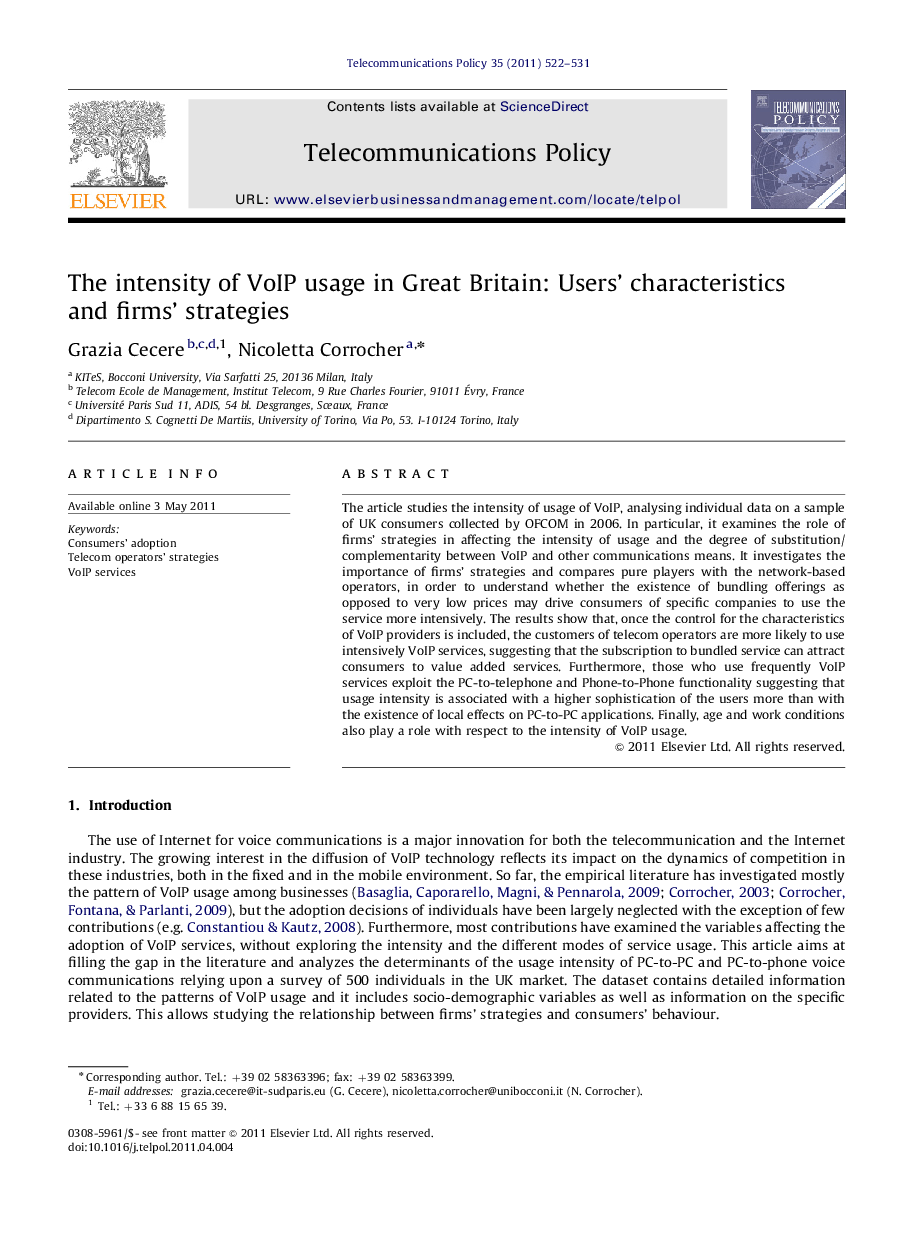| کد مقاله | کد نشریه | سال انتشار | مقاله انگلیسی | نسخه تمام متن |
|---|---|---|---|---|
| 557036 | 874529 | 2011 | 10 صفحه PDF | دانلود رایگان |

The article studies the intensity of usage of VoIP, analysing individual data on a sample of UK consumers collected by OFCOM in 2006. In particular, it examines the role of firms' strategies in affecting the intensity of usage and the degree of substitution/complementarity between VoIP and other communications means. It investigates the importance of firms' strategies and compares pure players with the network-based operators, in order to understand whether the existence of bundling offerings as opposed to very low prices may drive consumers of specific companies to use the service more intensively. The results show that, once the control for the characteristics of VoIP providers is included, the customers of telecom operators are more likely to use intensively VoIP services, suggesting that the subscription to bundled service can attract consumers to value added services. Furthermore, those who use frequently VoIP services exploit the PC-to-telephone and Phone-to-Phone functionality suggesting that usage intensity is associated with a higher sophistication of the users more than with the existence of local effects on PC-to-PC applications. Finally, age and work conditions also play a role with respect to the intensity of VoIP usage.
► Intensive VoIP users use complex functionalities of VoIP (PC-to-Phone services).
► Intensive VoIP users use many providers to exploit different service bundles.
► VoIP and traditional fixed telecom services are to some extent substitute applications.
► There is no substitution effect between VoIP services and mobile phone use.
► Intensive users are more often customers of telecom firms than of pure VoIP firms.
Journal: Telecommunications Policy - Volume 35, Issue 6, July 2011, Pages 522–531